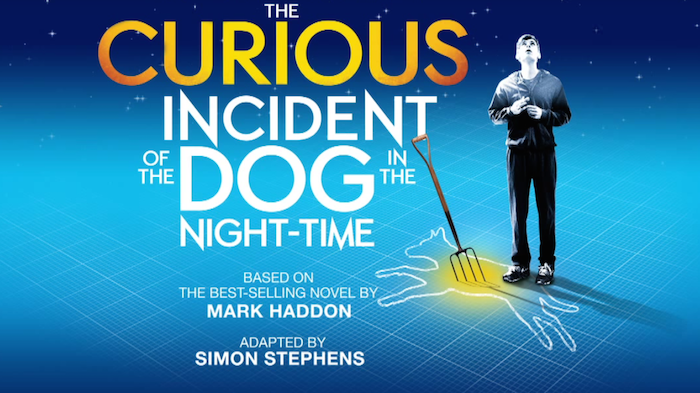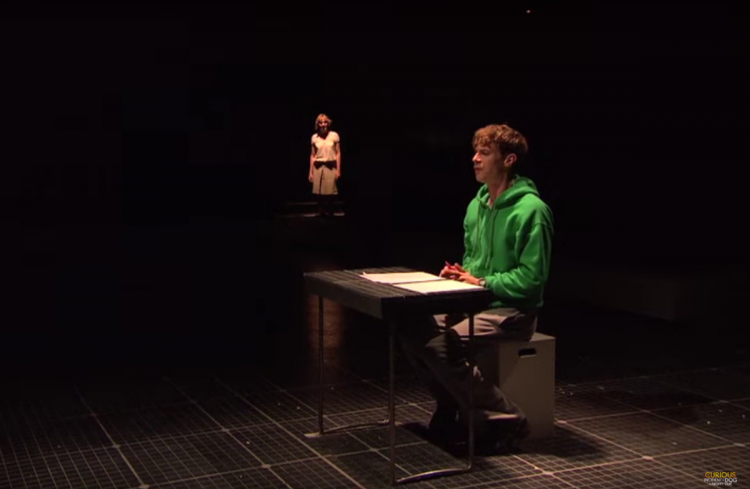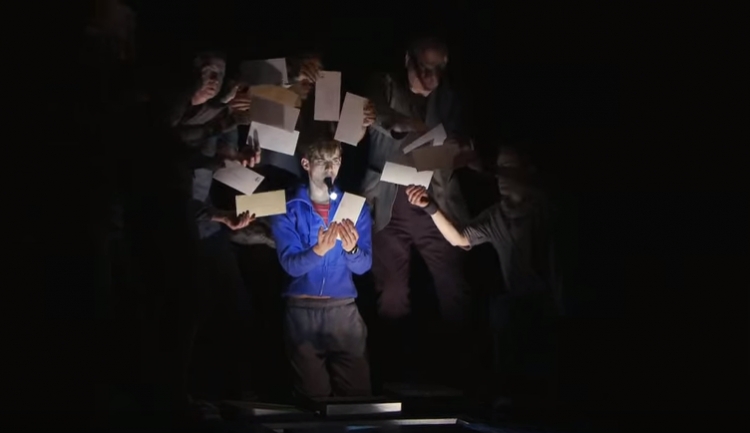Many in the autism community are taking aim at a hit Broadway play for not including autistic people.
“The Curious Incident of the Dog in the Night-Time,” based on the best-selling novel by Mark Haddon, has been a huge Broadway success. In 2015 the play, currently at the Ethel Barrymore Theatre in New York City, won several Tony Awards including Best Play.
The book the play is adapted from follows the story of 15-year-old Christopher, who is on the autism spectrum (although autism is never specifically mentioned in the book, the back cover states the main character has Asperger’s syndrome). The play uses special effects and graphics to bring the audience into the mind of Christopher. Despite autism being central to the plot, few people involved with the play have autism, including the actor who portrays the teenager.
“At the end of the day, this is a concern because the production has shown that they are not looking at perspectives of actual autistic people as a priority,” Ari Ne’eman, the president and co-founder of the Autistic Self Advocacy Network, told the Village Voice. “And in the context of a story that is all about presenting autistic people as this ‘other,’ this alien force, that’s really damaging.”

The original London production of the play initially hired Cian Binchy, a consultant with autism, but his role was temporary, and he said he’d like to see the lead role played by an actor with autism some day.
“Often people with autism who have talent are not given the opportunities they deserve,” he told the Independent. “It’s vital there are more opportunities. I do hope one day learning-disabled performance art will be pushed out of the ghetto and into the mainstream.”
Last September, Alex Sharp, the lead actor in the American play, was replaced by Tyler Lea. Autism advocates say this decision was made without auditioning any autistic people for the role. When The Mighty asked whether this was true, a publicist for “The Curious Incident” refused to comment.

Discussions about the ethics of excluding the perspective central to the play cropped up on Tumblr and in the comment sections of articles like this. A Change.org petition was also started.
A publicist for the play’s production team offered The Mighty the following statement:
There has always been a policy of inclusion in the opportunity to audition for “Curious Incident.” The production encourages professional actors who self-identify as being on the autism spectrum who are interested in playing the role of Christopher to submit their headshot, resume and any relevant information about their actor training or experience to the production’s casting department for consideration to audition. Actors on the autistic spectrum have auditioned and will continue to be seen for the role of Christopher in current and future productions.
Submissions can be sent to CuriousIncidentCasting@gmail.com

Justin Kaiser, an autistic actor and nuerodiversity activist from San Francisco, has written articles about the controversy on theater website Howlround, emailed the play’s creative team and helped spread the word.
“As an autistic actor I know how the deck is stacked against us, especially when it comes to auditions, small talk and the relationship building necessary to receive roles,” Kaiser told The Mighty in an email. “When a play like ‘Curious Incident’ is specifically talking about our autistic minds but ignoring the feedback of the autistic community, it’s incredibly hurtful. That is why I am so passionate about this and putting my time and energy behind it.”
To Carolyn Ledesma, a woman from Portland, Oregon, who’s been campaigning against the play online, it’s an issue more easily illustrated when thought about in terms of race.
“I am a black autistic woman. I have lived both of these things and when it comes to the issue of representation I can tell you, the issue is exactly the same,” Ledesma told The Mighty in an email. “Black face isn’t OK. Yellow face isn’t OK. The fact that people feel ‘crip-face’ should be OK just illustrates the invisibility of the disabled community in the arts and how institutional ablism works to normalize things like this. If the characters are neurodiverse, then let neurodiverse people have some say in the decision about how they are portrayed on stage.”

In June of 2012, Haddon sold the rights for a film version of the book to David Heyman and Steve Kloves, the producer and screenwriter behind the “Harry Potter” films, the Telegraph reported. Autism advocates are waiting to see what kind of involvement the film will have with autistic people.
“That’s really what this is about, at the end of the day,” Ne’eman told the Village Voice. “It’s about the idea that disabled people should not be made incidental to our own stories.”
